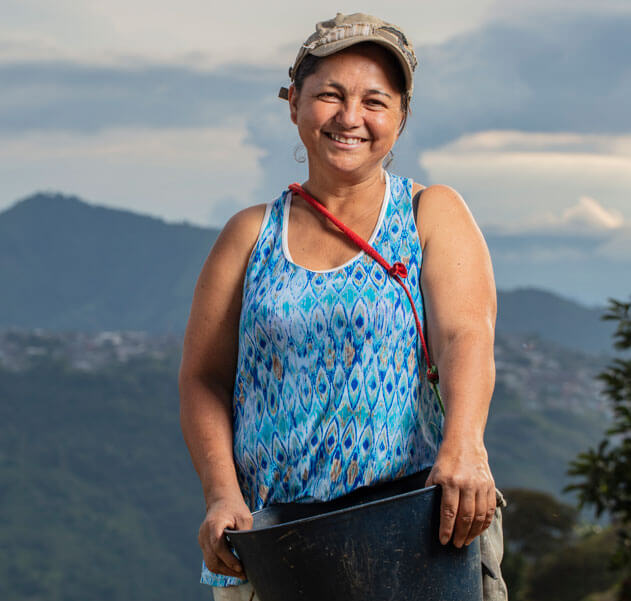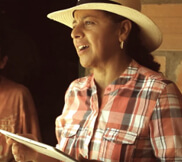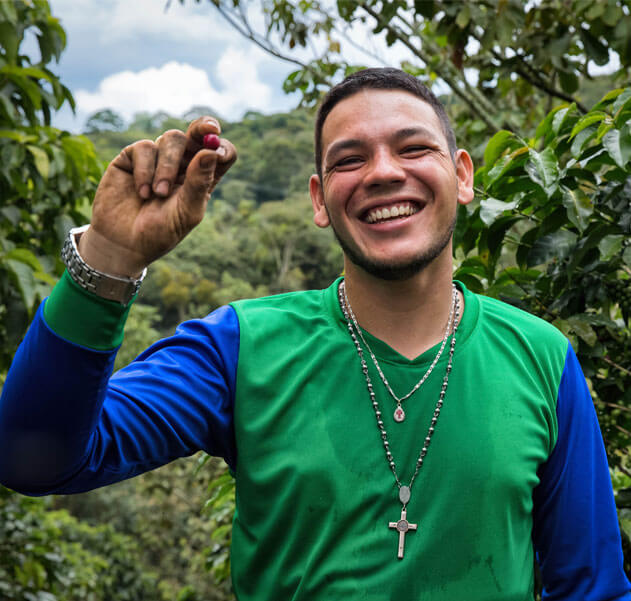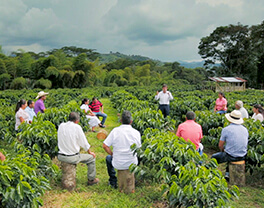In the Social Axis
we work through 6 paths
Education
We promote capacity building in rural education, skills training and human development.
Infrastructure
We manage and execute projects to improve roads, housing, basic sanitation, energy, social infrastructure, connectivity and water treatment.
Social protection
We promote social security in coffee families and communities.
Community participation and associativity
We promote the strengthening of the capacities of associative groups, community groups and coffee cooperatives.
Gender equity
We promote the right to access development opportunities in the coffee industry with justice and equality and empower women to lead processes in the farm and communities.
Generational splice
We strengthen leadership, entrepreneurship opportunities and life options in coffee for children and young people.
Outstanding contributions to Colombian rural development
- We manage and execute the construction or improvement of more than 7 million * of infrastructure works, including housing, public services, roads, schools, hospitals, clinics, sports centers, beneficiaries and dryers, among many others. * Consolidated data between 1944 and 2015.
- We have managed to mitigate the effects of violence, armed conflict, illicit crops and contributed to producers not abandoning coffee.
- The effort of the coffee institutionality has turned to strengthen not only the productive apparatus of Colombian coffee growing, but also to ensure the sustainability of the sector and to improve the quality of life and well-being of thousands of rural inhabitants.

SUCCESS CASE
Gender equiality
In Colombia, almost 30% of coffee growers are women, and several studies confirm that their role in the family economy translates into greater sustainability. In the FNC we are committed to gender equity (since 2006 we have a program dedicated to it), the empowerment of women and their increasing participation both in the coffee value chain and in producer associations and in the management bodies union. An example of this is that in the 2018 coffee elections, women’s union representation increased to 15% in the Departmental Committees from 8% in 2014, and to 24% in the Municipal Committees of 16% in 2014.
Data of interest
30%
of coffee growers in Colombia are women
15%
of union representatives in departmental committees are women
24%
of representatives in municipal committees are women

CASE OF SUCCESS
Generational integration
enerational integration is one of the main challenges in the coffee sector. And to address it, at the FNC we work in different fronts.
In addition to institutional support to all producers, we promote policies, models, spaces, programs and projects of education, meeting, participation, innovation and entrepreneurship for young people to build a life project around coffee.

Data of interest
20%
Is the rate of union representatives under 45 years old in the departmental committees
34%
Is the rate of union representatives under 45 years old in the municipal coffee grower committees
2018
Year when the 1st National Meeting of Young Coffee Growers was held





